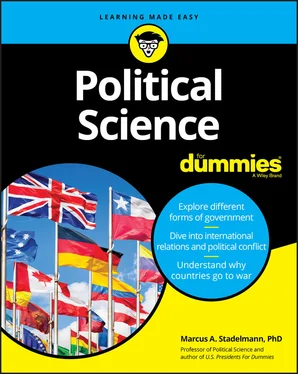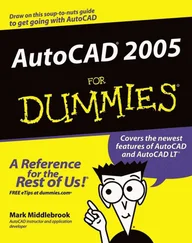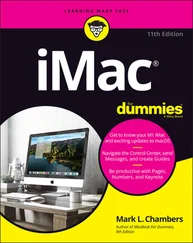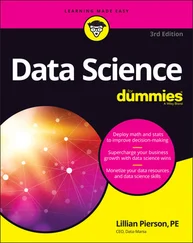Unitary governments, on the other hand, totally ignore any form of diversity in a country. All decisions are made at the central level, ignoring local differences. This often results in citizens being opposed to policies because they don’t reflect their values. Not surprisingly, unitary forms of governments are better suited for less diverse and more homogenous nations. This explains why it works so well in France or the Netherlands.
Are there any advantages to unitary systems? Yes, there are. The major advantage of a unitary system is its uniformity. The same types of policies apply to every part of a nation, which makes it easier for both people and businesses to know what to expect. A person in France knows exactly which laws and regulations are in effect regardless of the part of France he’s in. A good example are building regulations for private homes. In the U.S., regulations vary from state to state. This can be tough on prospective home owners and also builders who construct homes across states. In France, the regulations are the same everywhere in the country. This makes it easier for both buyers and builders.
A second very topical example involves taxation. In a unitary system, taxes (personal income, sales, and property) are the same throughout the country. There’s no reason to move to another part of France to avoid paying higher taxes. In the U.S., taxation is high in some states and low in others. With the states being able to set their own rate for income, sales, and property taxes, some states are more expensive to live in than others. This has led to a mass exodus from high-tax states to low-tax states. Today, California, one of the states with the highest tax rates, is losing population, while Texas, a low-tax state, is gaining people rapidly and will at some point overtake California as the most populous state in the union.
Finally, unitary systems do better with public education. With the central government setting similar high standards for the whole nation, nobody is allowed to deviate from it, while the central government provides the funding for education. Today, both France and Japan have some of the highest educational standards in the world.
There a few reasons to create or join a federation. First, some smaller states facing a common foreign threat can join to become more powerful and protect each other. You can make a good argument that one of the major reasons the 13 original American colonies came together to create the United States of America was because they faced a common threat from several European powers, especially Great Britain, France, and Spain. By combining and joining resources, the 13 colonies were suddenly able to establish a viable economy, implement a system of taxation, and especially create a common military force to face any future threats.
Second, federalism can be a prerequisite to create a new nation-state. It’s implausible that the 13 original states would have joined a unitary system. A federation allowed each to maintain its own way of doing things. In other words, not just local culture but also the power of local leaders was protected by federalism. Local autonomy makes it easier for previously independent states to join a new federation. Other examples include Brazil and Argentina in Latin America.
Checking on confederations
Today, confederations have become a rarity. A confederation is a very loose organization of localities or states. In a confederation, these localities and states hold all the political power. The central government itself has none or only a few powers.
A great example is the first government created by the U.S. after the Revolutionary War was won. During the Articles of Confederation, all powers were held by the original 13 states, while the central government around the Continental Congress held few powers. Soon, many in the U.S. noticed that for political and economic reasons, the confederation had to be changed into a federation. Without the power to tax or regulate commerce, the new Continental Congress didn’t have the monies to create a military to defend the country, and trade between the states was chaotic. For this reason, a new constitution with a federal form of government was written and ratified. A good example of a confederation today is Switzerland where the central government has few powers but real power is exercised at the canton (German for state) level.
Failing — The Articles of Confederation
In 1774, 12 of 13 colonies (Georgia refused to attend) agreed to set up a united legislature, the Continental Congress. The Continental Congress turned into a national legislature during the Revolutionary War and became the new central government after the War of Independence against Great Britain had been won.
In 1781, the Continental Congress passed the Articles of Confederation , creating a confederation between the 13 former colonies. After the states ratified the Articles of Confederation, the Continental Congress renamed itself the Congress of the Confederation and became a weak national legislature. It had no real powers, including the power to tax or the power to create a national army. The real power remained within the 13 states.
The confederate form of government caused immediate problems for the new country:
No power to tax: Without the power to tax, the Continental Congress couldn’t establish a large military, needed with the British, Russian, and Spanish empires still in North America.
Unable to redeem war bonds: With the war over and the national government unable to tax, nobody redeemed the bonds. Many patriotic people who bought war bonds to support the war for independence lost their life savings when they couldn’t redeem the bonds. Not surprisingly, people complained.
Trade issues: Trade became a problem, with the states treating each other like they were foreign countries. How can a united country be established when its members impose trade restrictions against each other?
By 1785, many prominent politicians in the U.S. were worried. They felt that the new country was in serious trouble and that the new government, created by the Articles of Confederation, wasn’t working. For this purpose, a national meeting in Philadelphia was called to change or revise the Articles of Confederation. This meeting, also referred to as the Constitutional Convention, began in May of 1787. Its original purpose was just to change the Articles of Confederation, not to write a new Constitution. The convention lasted until September 1787, and the delegates actually overstepped their authority and voted to approve a new constitution for the country, which changed the country from a confederation to a federation.
Classifying the three systems of governments
After studying the various systems of governments, it’s now possible to classify them. Table 4-2presents the three systems of governments, the level of centralization for each one, and examples for each system.
TABLE 4-2Three Systems of Governments
| System |
Level of Centralization |
Examples |
| Unitary |
All power is centralized with a central government. |
France, Japan |
| Federal |
Some power is reserved for subnational levels of governments such as states. |
United States, Germany |
| Confederation |
Subnational levels of government have most power. The central government is weak. |
Switzerland, the United States under the Articles of Confederation (1781-1789) |
Конец ознакомительного фрагмента.
Читать дальше












